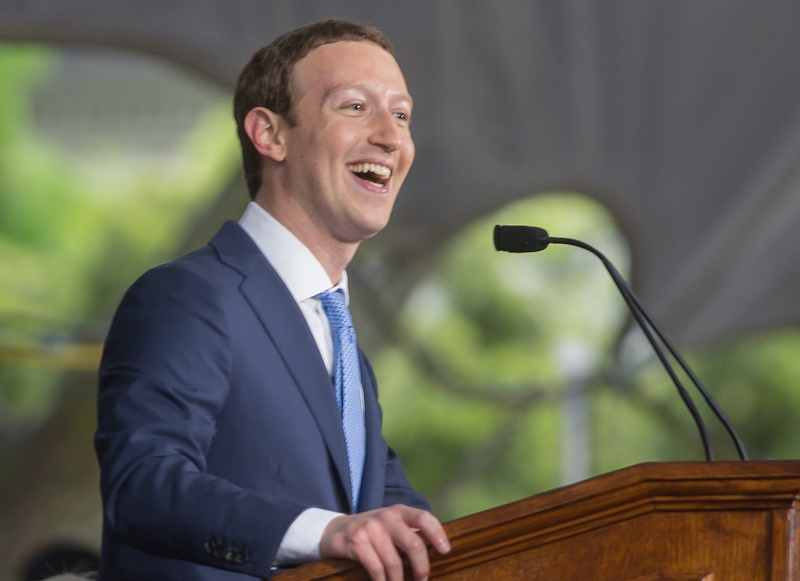Zuckerberg
Mark Zuckerberg, the visionary entrepreneur behind the global social media giant Facebook, has played an instrumental role in shaping the landscape of modern communication. Born on May 14, 1984, in White Plains, New York, Zuckerberg demonstrated an early aptitude for computer programming and an innate curiosity about technology. This passion led him to create one of the most influential and controversial platforms in the world.
The Early Years:
Zuckerberg’s journey into the tech world began during his teenage years. At just 12 years old, he created a messaging program called “ZuckNet” for his father’s dental practice, demonstrating a precocious talent for software development. His parents, Edward and Karen Zuckerberg, recognized his potential and enrolled him in a graduate-level computer course at nearby Mercy College.
Harvard Days and the Birth of Facebook:
Zuckerberg’s trajectory shifted when he entered Harvard University in 2002. While studying psychology and computer science, he continued to hone his programming skills. The pivotal moment came in 2004 when Zuckerberg, along with his college roommates Andrew McCollum, Eduardo Saverin, Chris Hughes, and Dustin Moskovitz, launched “The Facebook” from their dormitory room.
Initially conceived as a platform exclusively for Harvard students, the website quickly gained popularity, prompting the team to expand its reach to other universities and eventually to the general public. In 2005, the company dropped “The” from its name, officially becoming Facebook.
Rapid Expansion and Controversies:
Facebook’s growth was meteoric, and it soon became the go-to platform for social networking. Zuckerberg’s ability to adapt and innovate fueled the company’s expansion beyond college campuses, reaching users worldwide. The introduction of the News Feed feature in 2006 marked a significant shift in the platform’s dynamics, offering users a curated stream of content based on their preferences and interactions.
However, Facebook’s success was not without its fair share of controversies. The platform faced criticism for its handling of user privacy, with several incidents raising concerns about data security. The most notable of these was the Cambridge Analytica scandal in 2018, where the personal data of millions of users was harvested without their consent for political purposes.
Despite these challenges, Zuckerberg weathered the storms, testifying before Congress and implementing changes to address privacy concerns. The controversies served as a catalyst for increased scrutiny of tech companies and sparked conversations about the ethical implications of data collection and usage.
Innovation Beyond Facebook:
Zuckerberg’s influence extended beyond Facebook with strategic acquisitions and new ventures. Notably, in 2012, Facebook acquired Instagram, a photo-sharing app that would go on to become a social media powerhouse in its own right. In 2014, the acquisition of WhatsApp, a popular messaging platform, further solidified Facebook’s presence in the digital communication space.
The creation of the Chan Zuckerberg Initiative in 2015 marked a philanthropic turn for Zuckerberg and his wife, Priscilla Chan. The initiative focuses on addressing global challenges such as education, health, and scientific research. Zuckerberg pledged to donate 99% of his Facebook shares to the initiative, emphasizing a commitment to using wealth for positive social impact.
Challenges and Public Scrutiny:
As Facebook continued to dominate the social media landscape, Zuckerberg found himself in the midst of public scrutiny and government hearings. The platform’s role in the spread of misinformation, the influence of foreign actors in elections, and concerns about algorithmic biases became focal points of discussion.
Zuckerberg, known for his reserved and sometimes enigmatic demeanor, faced criticism for the perceived opacity of Facebook’s decision-making processes. Calls for increased regulation of social media platforms gained momentum, with lawmakers and advocacy groups urging more transparency and accountability.
Meta: A New Chapter Begins:
In a pivotal moment for the company, Zuckerberg announced a rebrand in October 2021, unveiling Meta as the new parent company overseeing Facebook and its subsidiaries. This move reflected Zuckerberg’s vision for the future, centered around the development of the metaverse – a collective virtual shared space that goes beyond the limitations of the physical world.
The metaverse concept envisions a digital universe where people can interact, work, and socialize through augmented and virtual reality. Zuckerberg’s ambitious plans for Meta involve creating a next-generation internet experience that integrates various technologies to redefine how people connect and collaborate.
Critics and skeptics raised concerns about the potential implications of a corporate-controlled metaverse, citing issues related to privacy, digital addiction, and monopolistic practices. Zuckerberg, however, remained steadfast in his belief that the metaverse could revolutionize the way people communicate and collaborate, emphasizing its potential for positive impact.
Legacy and Future:
Mark Zuckerberg’s journey from a college dorm room to the helm of one of the world’s most influential companies is a testament to his entrepreneurial spirit and technological foresight. Despite the challenges and controversies that have accompanied Facebook’s rise, Zuckerberg has continued to shape the digital landscape and redefine the boundaries of social connectivity.
As Meta embarks on its mission to build the metaverse, Zuckerberg’s legacy will be closely tied to the success and impact of this ambitious endeavor. Whether he can navigate the complexities of a rapidly evolving digital landscape and address the ethical concerns surrounding technology remains to be seen.
Conclusion
Mark Zuckerberg‘s influence on the tech industry and global communication is undeniable. From the creation of Facebook to the vision of the metaverse, he has consistently pushed the boundaries of what is possible in the digital realm. As Meta continues to evolve and face new challenges, Zuckerberg’s legacy will undoubtedly be a subject of ongoing scrutiny and discussion in the ever-changing landscape of technology and social media.













Post Comment